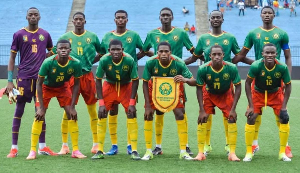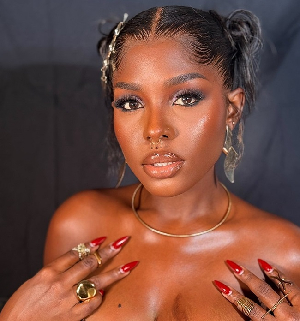Johnnie Carson, the former US Assistant Secretary of State for the Bureau of African Affairs, has told RFI that the US is unwilling to provide lethal weaponry to Nigeria in their fight against the hardline Islamist group Boko Haram.
Carson said President Goodluck Jonathan’s request for US support is not likely to be met with the supply of lethal equipment over concerns about human rights abuses. Nigerian forces are battling against Boko Haram’s insurgency in the northeast of the country.
In recent months, attacks by Boko Haram have spilled over into neighbouring Cameroon, Chad and Niger. Nigeria’s elections, originally scheduled for 14 February, have been delayed for six weeks because of worries about security.
During his career, Carson worked for the US foreign service in Nigeria and currently acts as a senior advisor to the president of the US Institute for Peace.
Attahiru Jega, head of the electoral commission, said that any other delay to the elections would be unconstitutional. Could you envisage another delay to the polls?
I hope that there would not be another delay in the Nigerian national elections. I believe that the current delay was unnecessary, justified for security reasons but probably done for political reasons. What political reasons?
I believe that the inner circle around President Jonathan wanted a little bit more time to develop a campaign that would ensure a victory on the part of the president. Therefore, [they] probably sought ways through the postponement of the election by six weeks to give his party a greater chance of re-election.
Thus far during this delay, do you think it’s given him a better chance of being re-elected?
Clearly the justification for doing this was to launch a major counter-offensive against Boko Haram in the northeastern part of the country. If there are no major successes in that military campaign which has delayed the elections, then people will wonder why it was done.
President Goodluck Jonathan at the weekend gave an interview in which he requested assistance from the US. What do you make of these comments? Those comments reflect the very difficult struggle that is going on between the government and its attempts to suppress and defeat Boko Haram.
They also reflect the current inability of the government security apparatus in and of itself to be able to defeat Boko Haram and the need for its forces to be shored up. But the effort to defeat Boko Haram should in fact primarily be a Nigerian effort. It is an important effort that the country needs to undertake, but the situation is very worrying in the north east. What difficulties does the US administration have in helping and supporting Nigeria?
I think it is important for the US and Nigeria to have a good, strong healthy relationship and the two countries have been good friends and partners for many years. The US has, however, been reluctant to provide, as I understand it, some lethal equipment to Nigeria because of the apprehension and fear that this equipment will be used, not only in the effort to defeat Boko Haram, but also misused and abusing human rights.
There have been cases that have been documented by a number of international organisations of human rights abuses by the Nigerian military. I think that is the issue that is of greatest concern to probably some who are looking at the issue of assistance.
Is that why the US might be more willing to help a country like Cameroon fight Boko Haram, as opposed to Nigeria?
The Cameroonian military has not faced serious charges or allegations of human rights abuses. The support that is given to a nation is, in part, based on whether those resources are going to be put in the hands of individuals who are going to be using it responsibly or whether in fact it is going to be put into the hands of individuals who have been accused or seen to be in violation of human rights.
Given that Nigeria has been fighting against Boko Haram for several years already, do you think the Western powers will have to step in and send troops on the ground in the future?
It is not first and foremost a problem for the West although I think, as I say, we’re all concerned about violent extremism, how it can move across borders, how it can undermine states and how it can dislocate economies. But having said that, certainly elements of training, elements of information and intelligence sharing, elements of some level of equipment, all of these things are possible as elements of support.
One last thought on this is that the problems of Boko Haram will not be eliminated simply through military defeat. The issues which have created Boko Haram are multi-dimensional.
Will it be problematic for the countries putting together this joint multinational task force to secure funding from the so-called international community?
I don’t know. Let me just say, clearly France has a real interest in trying to ensure its close partners in the region, Cameroon, Niger and also Chad, are not negatively impacted by the instability generated by Boko Haram.
So I would think that the French government will work very closely particularly with the Francophone states in the region to help them sufficiently address the security needs they face.
Chad has been a strong, leading and forward partner in the French and UN-led efforts, particularly in the beginning, fighting AQIM (al-Qaeda in the Islamic Maghreb) in northern Mali and I think again they have come very quickly to the fight in the north east.
I suspect France sees a need that what has happened in the northeast of Nigeria does not undermine those three Francophone partner countries with which it has had very good, strong, traditional and historical relations.
Actualités of Saturday, 21 February 2015
Source: RFI













